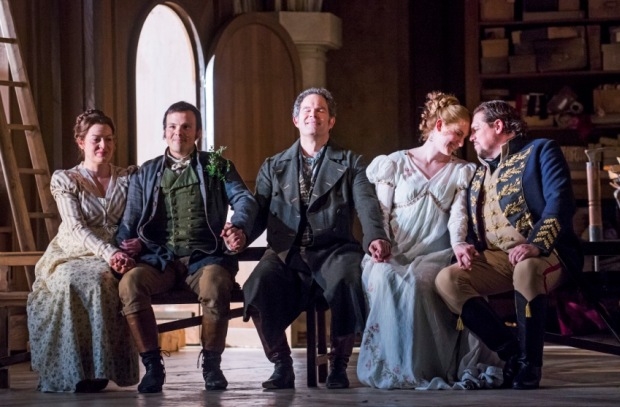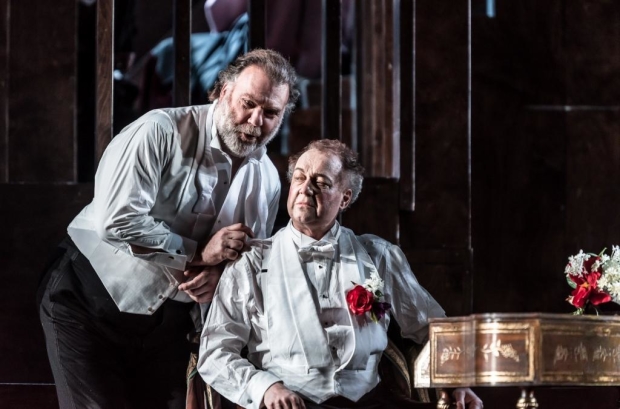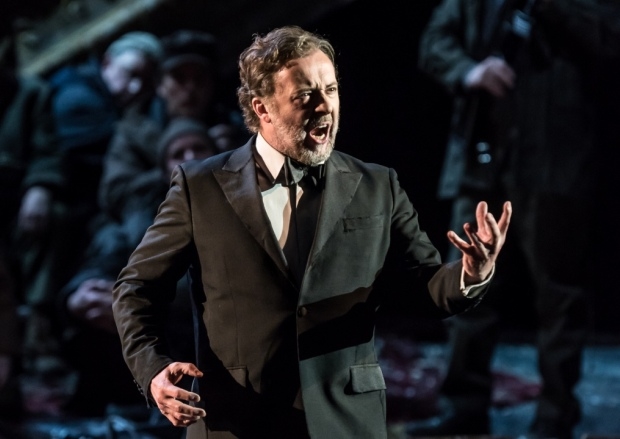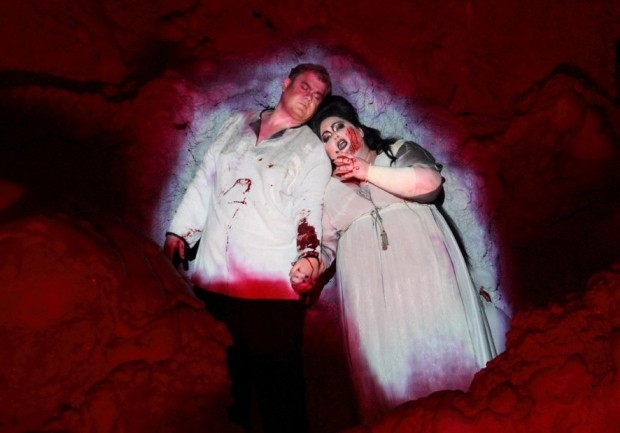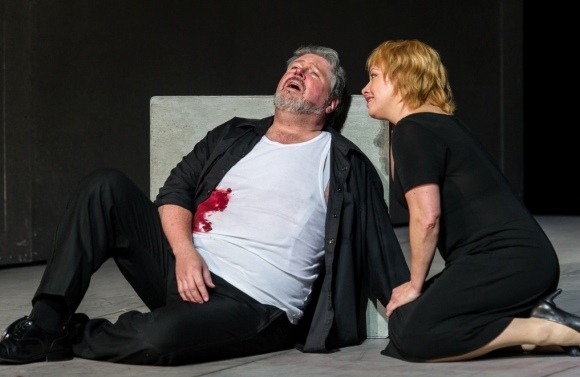Review: Lohengrin (Royal Opera House)
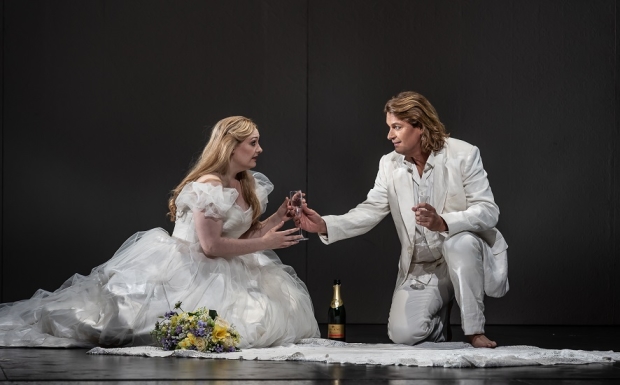
© Clive Barda 2018
David Alden's production is a puzzle. He updates ancient Brabant to the vaguely fascistic 20th-century realm of a downtrodden proletariat overseen by a weak king. The opera's noble swan is given a Nazi makeover, as though to equate Lohengrin's arrival with Hitler's rise to power, but that's as far as the subversion goes. It is, nevertheless, an aesthetic that's easier to dismiss than Alden's tiresome tic of chucking chairs to indicate rage, a sterile recourse that's done to death here as never before.
Wagner's opera is so rarely glimpsed nowadays that a recap may help. King Heinrich condemns Elsa for the supposed murder of her brother. As defence she calls on a vision from her prayers to rescue her, and sure enough a stranger rides in on a snow-white swan (a potentially bathetic moment that's well rendered here through an abstract videogram). The man with no name saves Elsa and marries her, but warns that she must never ask who he is. Cue the jealous villains, Telramund and Ortrud, to drip poison in the poor girl's ear.
The show's visual strength is its clarity, even though Paul Steinberg's crooked house set offers few rewards and little by way of context. It's another entry in the Royal Opera's portfolio of gloom, and Adam Silverman's sepulchral lighting stays oppressive until the moment Alden lurches into Disney and brings on a maleficent Ortrud, shocking in a blood-red frock, to crash the wedding.
Musically, this Lohengrin is terrific. Andris Nelsons secures playing of virtuosity and sophistication from the ROH Orchestra: its brilliance raises spirits and the big moments raise hairs. Indeed, the Latvian maestro's command of this deceptively complex music is total. As for the Royal Opera Chorus, its massed singers have been prepared by William Spaulding to deliver this most choral of Wagner's scores with scintillating authority.
Even the smallest roles are taken from strength, and a sturdy trio of low-voiced men provide the opera's ballast. Distinguished German bass Georg Zeppenfeld made more of King Heinrich than Alden seems to have in mind; Kostas Smoriginas, strapped in splints, sang the declamatory Herald with clarion power, and Thomas J Mayer overcame a chest cough (for which an apology was made between acts) to inhabit the baleful Telramund.
As the heroic title character, Klaus Florian Vogt gave a performance of such authority that his curious timbre seemed by the way. The voice is a hybrid: it has a milky quality familiar from light operetta, yet his huge reserves of power let him ride the waves of Wagner's orchestrations. It's one Schnapps short of a Heldentenor but it does the job, and his final scene was mesmerising.
The sopranos of Jennifer Davis (Elsa) and Christine Goerke (Ortrud) could not be further apart in character, yet their voices complemented each other thrillingly during the tense blandishment scene. Goerke is a dramatic soprano who never loses sight of vocal beauty; yet I haven't heard her sound better than here. Davis meanwhile, an Irish graduate of the Jette Parker Young Artist programme (and a late replacement for Kristine Opolais), seduced ears and grabbed hearts like the fully-fledged star she now is.



